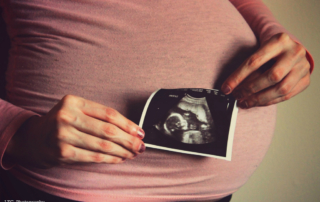Serotonin Reuptake Inhibitors and Fertility (Part 2): What Can Basic Science Tell Us?
Serotonin (5-HT) is one of the neurotransmitters involved in mood regulation and has been implicated in the development of mood and anxiety disorders. Serotonin transporters (SERT) facilitate the transfer of serotonin into neurons; serotonin reuptake inhibitor (SSRI) antidepressants bind to these transporters and appear to exert their effect on mood by inhibiting the reuptake of serotonin and thus increasing the levels of this neurotransmitter at the synapse.

![By Vera Kratochvil [Public domain], via Wikimedia Commons](https://womensmentalhealth.org/wp-content/uploads/2015/06/Mother_Kissing_Baby-320x202.jpg)




